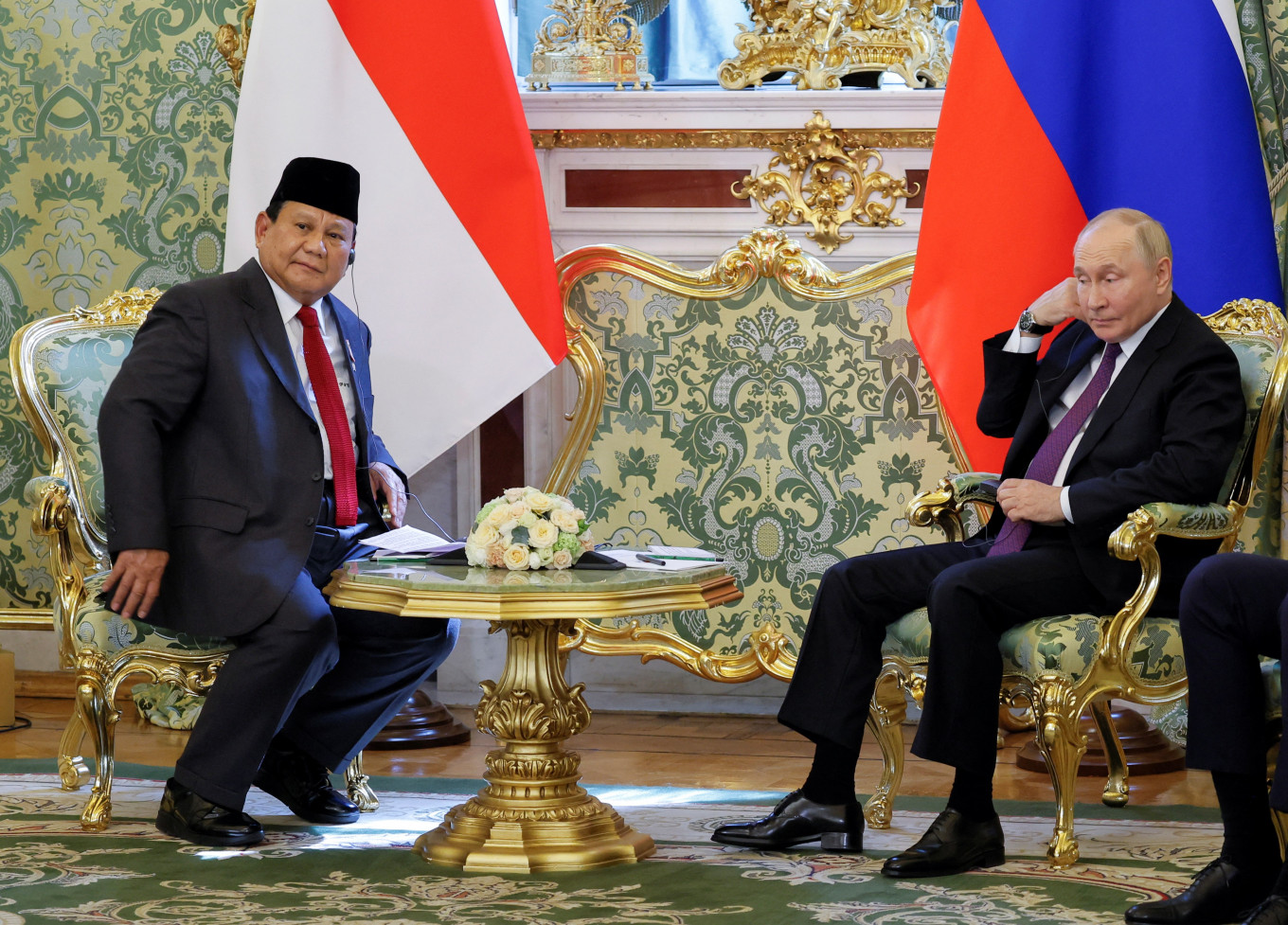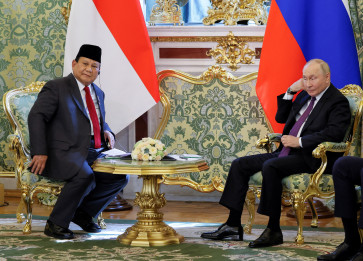Popular Reads
Top Results
Can't find what you're looking for?
View all search resultsPopular Reads
Top Results
Can't find what you're looking for?
View all search resultsIntegrative balancing as Indonesia’s next foreign policy
Prabowo and his foreign policy team need to make Indonesia and ASEAN effective and respected actors in the Indo-Pacific, the Atlantic, the Americas, Africa and, most importantly, in the world’s oldest civilization and epicentrum, the Middle East
Change text size
Gift Premium Articles
to Anyone
I
n its essence, foreign policy is a state’s set of actions, and even inaction, to shape and influence other state and non-state actors’ behavior at the global level, within the context of generating favorable strategic environments for the state to pursue the defending and advancing of its national interests at the global level.
Correspondingly, according to Kalevi Holsti (1976), foreign policy as a statecraft is the organized actions governments take to change the external environment in general, or particularly the policies and actions of other states to achieve the objectives set by policymakers.
It is presidential upbringing and belief systems that lead to foreign policy preferences, orientation and objectives, particularly on the gap between foreign and domestic policy and the national security and foreign policy decision-making process. One important way to predict Indonesia’s next foreign policy is by examining the personality traits and professional record of Indonesia’s president for the period of 2024-2029.
Defense minister and president-elect Prabowo Subianto is rather a reconstructor of establishment, where he has the tendency to confidently shape the surrounding structure instead of being shaped by the environment constraining him.
Prabowo’s upbringing, which was heavily influenced by the spirit of patriotism, internationalism, positive thinking and the endless pursuit of strategic vision, indicates that he grew up as an optimistic nationalist individual with the global realm in the back of his mind, who strongly believes that his presence will change the structure surrounding him.
Prabowo’s ideology and background as a soldier and businessman reflect that he tends to view the world’s prospects more realistically through a neo-Hobbesian (potentially more chaotic) lens, rather than neo-Kantian (more idealist).
However, his long-time and well-grounded experiences in the Army special forces’ psychological operations unit and in the hard-won democratic politics have well equipped him to become a constructivist figure who tries to consolidate all sources of power by assimilating and reconstructing various ideological, cultural and norms both at the domestic and global level.



















